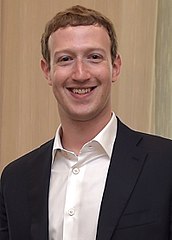Facebook separating commercial, political ads
As of right now, it’s nearly unquestionable that Russians had a hand in last year’s presidential election in favor of President Donald Trump, even as it’s unproven whether Trump colluded with them. However, the scope of the influence itself may be surprising. An operation, likely based in Russia according to the CIA, purchased more than 3,000 political ads, spending more than $100,000 to do so, largely aimed at those unsure about whom they were voting for in the general election. Facebook has recently come under fire for allowing this to happen, and recently announced an overhaul of how it handles political ads after the U.S. government made a move to control it.
According to the company, from now on, federal political advertisers will have to verify the identities and locations of anyone looking to advertise politically on Facebook. Their ads will have to verify exactly who paid for the ad, a process that Facebook hopes will add some much-needed integrity to the process. The company will also reduce ad targeting for political ads, causing anyone to be able to see any political ad on Facebook at any time. “We remain deeply committed to helping protect the integrity of the electoral process on Facebook,” the company said in a statement Friday. This compromise came out of fire from U.S. lawmakers for not managing political ads on their websites, and Facebook has stated that it is targeted to address concerns that governments, including Russia, attempted to influence the U.S. election with targeted ads.
Special investigator Robert Mueller is currently looking into possible Russian interference and collusion with the Trump campaign, which Putin has feverently denied.
Nonetheless, Democratic Representative Adam Schiff, the leading Democrat in the House Intelligence Committee, wants a special hearing to understand why Facebook allowed this to happen in the first place and why it went on for so long without a solution, even after exposure. “It will be important for the committee to scrutinize how rigorous Facebook’s internal investigation has been,” Schiff said to reporters, “to test its conclusions and to understand why it took as long as it did.” Facebook themselves have taken an entirely different stance on the issue than they did during the 2016 elections, when CEO Mark Zuckerberg said that it was a “crazy idea” to think that targeted political ads influenced the election in any meaningful way.

This is my fourth year on the Bagpipe staff.
What is your dream job?
Psychologist
What are you involved with at the school?
President of Video Game Club, Reading Buddies tutor
How would your friends describe you?
Quirky



